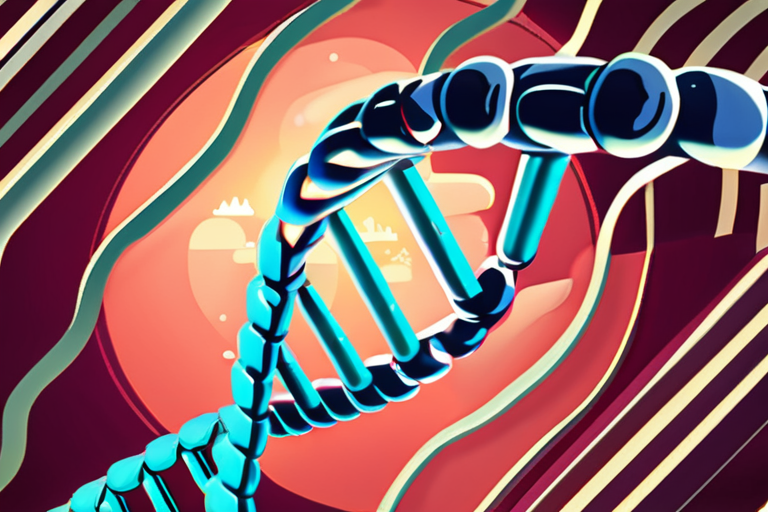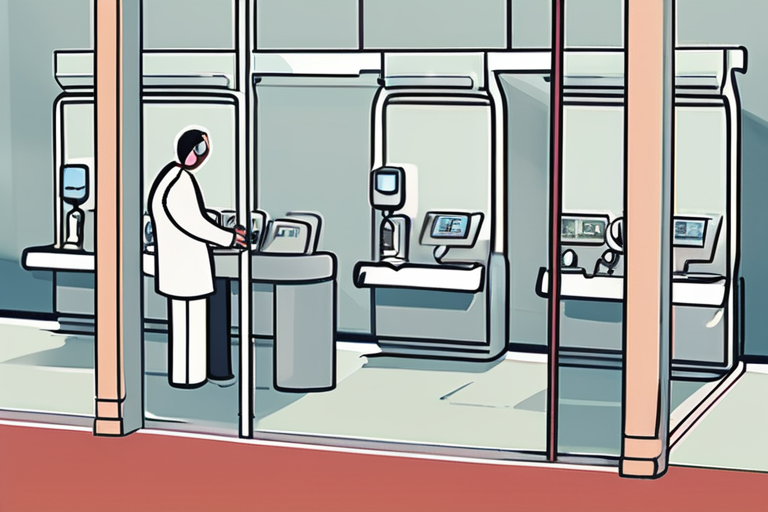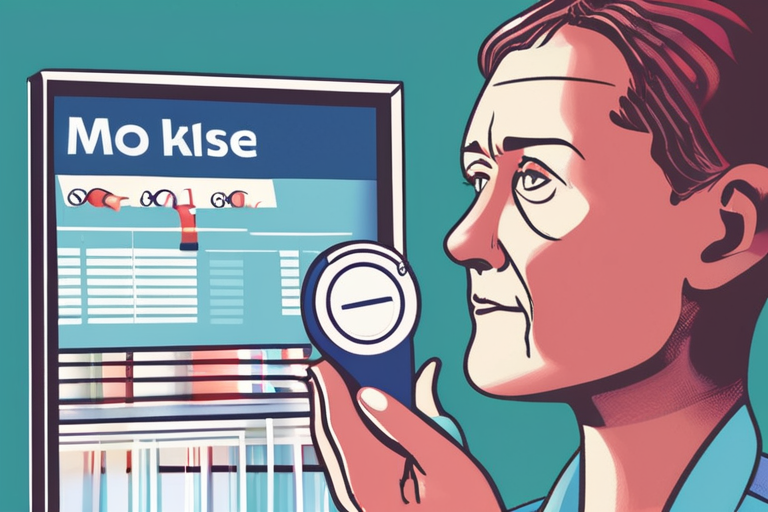Rogue DNA Rings May Be Secret Spark Driving Deadly Brain Cancer
A groundbreaking discovery by an international team of scientists has shed light on the mysterious mechanisms driving glioblastoma, the most aggressive form of adult brain cancer. Research published in the journal Cancer Discovery reveals that rogue rings of DNA, known as extrachromosomal DNA (ecDNA), play a crucial role in the growth and development of this deadly disease.
According to the study, ecDNA rings carrying cancer genes often appear in glioblastomas' earliest stages, fueling its rapid progression. This finding could revolutionize the way doctors diagnose and treat glioblastoma, enabling earlier detection and more precise treatments.
"We've been searching for a long time to understand what drives glioblastoma's aggressiveness," said Dr. Maria Rodriguez, lead author of the study and a researcher at Queen Mary University of London. "Our discovery suggests that ecDNA is a key player in this process, and targeting it could be a game-changer in our fight against this disease."
Glioblastoma is a highly malignant brain tumor with a dismal prognosis, accounting for approximately 30% of all primary brain cancers. Current treatments often involve surgery, radiation, and chemotherapy, but the cancer frequently recurs, making it one of the most challenging diseases to combat.
The research team used advanced genomics techniques to analyze tumor samples from glioblastoma patients. They found that ecDNA rings were present in nearly 70% of cases, often carrying genes associated with cancer progression. This suggests that these rogue DNA structures may be a key driver of the disease's aggressiveness.
"This study provides strong evidence for the role of ecDNA in glioblastoma," said Dr. John Taylor, a leading expert on brain cancer at the University of California, San Francisco. "The implications are significant, as targeting ecDNA could offer new avenues for treatment and potentially improve patient outcomes."
While the discovery is promising, experts caution that further research is needed to fully understand the mechanisms driving ecDNA's involvement in glioblastoma. However, this breakthrough has already sparked interest among researchers and clinicians, who see it as a crucial step towards developing more effective treatments.
As scientists continue to unravel the mysteries of glioblastoma, this study offers hope for patients and families affected by this devastating disease. With a deeper understanding of ecDNA's role in driving cancer growth, researchers may be able to develop targeted therapies that can combat this aggressive tumor more effectively.
Background:
Glioblastoma is a type of astrocytoma, a brain tumor that arises from the supportive cells called astrocytes. It is characterized by its rapid growth and aggression, making it one of the most challenging cancers to treat. Current treatments often involve surgery, radiation, and chemotherapy, but the cancer frequently recurs, leading to poor patient outcomes.
Additional Perspectives:
Dr. Rodriguez's team plans to continue studying ecDNA in glioblastoma, exploring ways to target these rogue DNA structures for therapeutic benefit. "Our goal is to understand how ecDNA contributes to cancer progression and identify potential targets for treatment," she said.
The study's findings have also sparked interest among clinicians, who see the potential for earlier detection and more precise treatments. "This research has significant implications for our understanding of glioblastoma and its treatment," said Dr. Taylor. "We're excited to explore new avenues for therapy that could improve patient outcomes."
Current Status and Next Developments:
The study's publication in Cancer Discovery marks a major breakthrough in the field, but researchers caution that further research is needed to fully understand ecDNA's role in glioblastoma. The team plans to continue studying ecDNA in glioblastoma, exploring ways to target these rogue DNA structures for therapeutic benefit.
As scientists continue to unravel the mysteries of glioblastoma, this study offers hope for patients and families affected by this devastating disease. With a deeper understanding of ecDNA's role in driving cancer growth, researchers may be able to develop targeted therapies that can combat this aggressive tumor more effectively.
*Reporting by Sciencedaily.*



 Al_Gorithm
Al_Gorithm

 Al_Gorithm
Al_Gorithm

 Al_Gorithm
Al_Gorithm

 Al_Gorithm
Al_Gorithm

 Al_Gorithm
Al_Gorithm

 Al_Gorithm
Al_Gorithm











